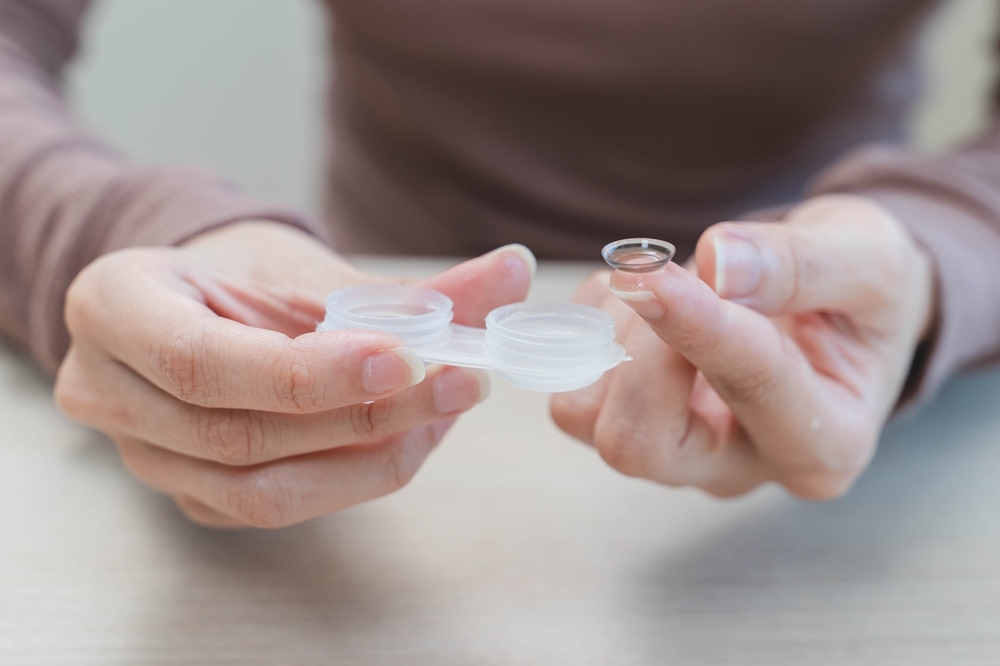
Are you stepping into the world of contact lenses? Most people who want to move away from glasses usually make their way to contact lenses. However, with the numerous options available out there, it is easy to get lost.
So, if you want to get contacts, where do you begin?
Soft Contacts
Imagine lenses made of flexible, water-friendly plastics (hydrogels or silicone hydrogels). These are not just comfortable; they are smart. They let oxygen reach your cornea — something your eyes desperately need to stay healthy.
Most newcomers love how soft lenses feel like almost nothing from day one. They gently hug your eye’s shape.
- Daily Disposables: You wear a fresh pair of daily disposables every morning. These are perfect for allergies, travel, or if you hate maintenance.
- Bi-Weekly/Monthly Lenses: You remove and clean these lenses nightly. Replace every two weeks or monthly. Great if you wear contacts daily and want value.
- Toric Lenses: These are for football-shaped eyes (astigmatism). They stay put for sharp vision.
- Multifocals: These are like progressive glasses in lens form. They let you read menus and see road signs clearly after 40.
Your eye doctor will help pick the rhythm that suits your life. For many, soft lenses become such a natural fit that they forget they are wearing them!
Rigid Gas Permeable (RGP) Lenses
New contact lens wearers might not wear RGP lenses, despite coming with significant advantages. These lenses are firm and durable, and the plastics they are made of allow oxygen to pass through. These lenses hold their shape firmly on your eye.
RGP lenses offer exceptionally sharp, clear vision, especially for people with high astigmatism or irregular corneal shapes.
Specialty Lenses
Sometimes, standard soft or RGP lenses are not the best option. Specialty lenses are custom-designed for more complex situations. Hybrid lenses combine features by having a rigid RGP center for sharp focus and a soft outer ring for comfort.
· Scleral lenses are much larger than typical contacts. They cover the cornea and rest on the white part of your eye (the sclera). This creates a fluid reservoir over the cornea, which is excellent for people with severe dry eye or irregular corneas.
· Orthokeratology lenses (Ortho-K) offer a unique approach. You wear them only while you sleep. They gently reshape your cornea overnight, and you can remove them in the morning for clear vision throughout the day, without lenses! These are primarily used for managing nearsightedness.
How Do You Know Which Type Is Right for You?
Your doctor will first check your overall eye health and confirm your vision prescription. They will also measure the curvature and size of your cornea.
Be honest with your doctor about your lifestyle! Talk about your daily activities, screen time, sports, and travel habits. Do not forget to mention any allergies you might have.
During the fitting, the doctor will check how the lenses fit, move, and feel. Your vision clarity will be tested carefully. You will wear the trial lenses for a short period, and then return for a follow-up to ensure comfort and eye health. Adjustments will be made if needed.
Getting Started Successfully
Your doctor will show you how to insert and remove your lenses safely. Practice right in the office to build confidence before going home. If you have reusable lenses, your doctor will teach you how to clean them properly. Always use the solutions they recommend.
For more on different types of contact lenses, visit Miller Vision Center. Our office is in Norman, Oklahoma. You can call (405) 389-4200 to book an appointment today.
https://www.allaboutvision.com/eyewear/contact-lenses/how-to/contact-lens-beginners-guide/







